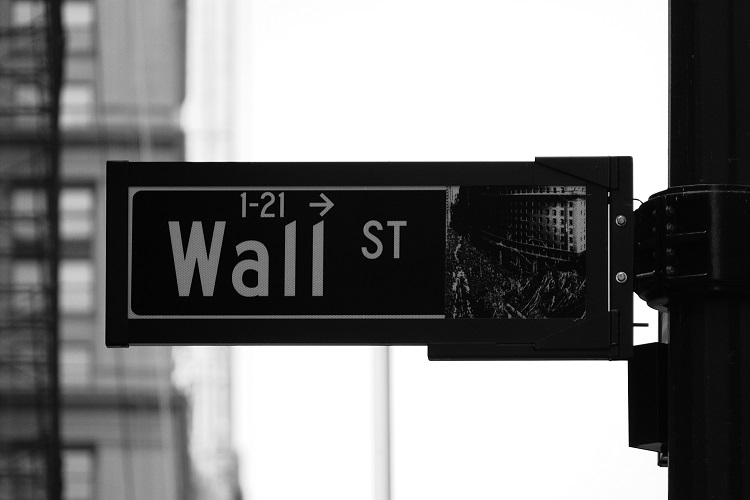Smart investors with a proven track record like J.D. Perry of Baton Rouge have always kept a diverse portfolio that includes investments outside of the stock market. In fact, the super wealthy (people valued at over $100 million) keep more than half of their wealth outside of stocks and bonds.

If you’re interested in diversifying your holdings outside the market, take a look at the following choices recommended by J.D. Perry, Baton Rouge finance expert.
1. Real Estate Crowdfunding
Getting started in real estate as an investment seems daunting unless you have a lot of cash, but there are affordable ways to enter this market. If you have a high-risk tolerance, plenty of free time, and some building skills, you might be able to lure a partner or two into a house-flipping venture.
But crowdfunding networks allow you to invest a set amount of cash in real estate without picking up a hammer. Fundrise pools investors’ money and sinks it into development projects. All you have to do is collect your returns quarterly. Fundrise is the best-known name in this field; other firms in the industry include Realty Mogul and Realty Shares.
Pros: Fundrise’s minimum investment is just $500, and historic returns have been over 10%. Relatively low-risk.
Cons: Not insured. It can take months to close out your position and get your cash back, and the process is not very transparent.
2. Life Settlement & Viatical Investing
The Life Settlement market is buying life insurance policies where the original insured has sold its policy. Big firms like Coventry and others will buy these policies directly from the individual as some discount. The buyer then turns and resells the discounted policy to investors. The advantage is you know before you invest exactly how much you will pay and the face value of the policy so your return is known. Investors have access to medical reports and life expectancies to help make decisions. A viatical is simply a life settlement but one where the life expectancy is two years or less due to some serious medical issue, such as stage 4 cancer for example.
Pros: Large market; known returns; not affected by market forces like economy, interest rates, politics or any other factor that moves the market, easy to understand and easy to execute. Great returns.
Cons: Not insured. Very high risk. Steep learning curve. Time-consuming (for many investors, this is a full-time job).
3. Cryptocurrency
Money is an interesting concept. At one time, currencies like the dollar represented a certain amount of gold or silver that was stored somewhere, but that’s no longer the case. Today, currency is worth whatever everyone agrees it is worth on a given day, and the whole system is mostly imaginary. For the most part, currency isn’t even represented by paper or coins any more; it exists only as a number on a computer in your bank account or credit card balance.
Cryptocurrency is different from other currency in two ways: it has no physical form at all, and a government doesn’t issue it. It exists and has value because people have agreed that it has that value, and you can spend it, save it, or invest in it like any other currency. The most well-known crypto is Bitcoin, and its early adopters made millions as its value soared from less than a penny in 2010 to over $19,000 in 2017.
Today, there are several popular types of crypto, such as Etherium and Litecoin, and new contenders are invented regularly. Some people think the crypto fad is over; others believe that a global currency that isn’t tied to a particular government is the inevitable future of the world economy.
If you’re interested in dabbling in crypto, Coinbase is a user-friendly platform that offers the top currencies of the day.
Pros: It’s easy to enter this market, and to trade. Price fluctuations happen around the clock and on weekends when the market is sitting still. Very liquid, can be bought and sold quickly and cashed out within days.
Cons: Not insured or backed by any government. High risk. The volatility in the market seems to have died down, and the time for making a fortune may have passed. Most investors would expect high returns for this level of risk.
4. Peer-to-Peer Lending
Networks like Lending Club allow small investors to pool their funds so they can get involved in the profitable activity of making loans. Individuals come to Lending Club to borrow money they need for home improvements, to start a business, or to consolidate their credit card debt. Just like traditional lending, they have to meet specific income and credit standing criteria, but those criteria are looser than what a bank requires. People with mediocre credit history can borrow from Lending Club, but they will pay higher rates.
Pros: As an investor, you buy up blocks of these loans, spreading out your risk by putting only a minimal amount (say $25) into each loan. You can work on a micro-level, approving each loan.
Cons: Low liquidity during the holding period, while life expectancies are highly accurate they are not exact so termination date unknown.
5. Foreign Exchange Trading
The Forex market is similar to cryptocurrency in that you are investing one currency in another and hoping to profit when you sell it. You can trade 24 hours a day, and the world offers a wide variety of currencies to participate in. Forex trading usually appeals to active investors who want to be engaged in short-term trading rather than buy-and-hold investors. There’s a steep learning curve, but for investors who are mathematically-minded and like to make predictions based on analysis, this is a good fit. There are a lot of get-rich-quick schemes in this market, often disguised as educational tools. Investopedia is a good place to start learning about Forex trading without exposing yourself to scammers.
Pros: Well-established investing tool that’s been around for a very long time. High potential for profits.
Cons: Not insured. Very high risk. Steep learning curve. Time-consuming (for many investors, this is a full-time job).
6. Absentee Owned Business
The super-wealthy like real estate, but the majority of their funds are invested in private enterprises. In other words, they are making their money in businesses that aren’t publicly traded. They are making their money either as absentee owners or as venture capitalists.
A smaller investor might not have enough cash to start an absentee-owned business; it could take $50-100k to get a franchise off the ground, for instance, and you’d want enough cash to pay a well-qualified manager while you build the profits. But if you can put together a small group of investors, you could form an LLC, each put in $5-10k, and borrow the rest of what you need to start the business.
If you are creative and business-oriented, you can skip the franchise fees and go into something with a lower start-up cost, like a laundromat, vending machine route, dance or yoga studio, or hair salon.
If you have a significant amount to invest, you can also keep your eyes open for small businesses with a lot of potential who need venture capital to grow. Your local small-business magazine may have an advertising section that connects venture capitalists or “angel investors” with growing businesses.
Pros: Potentially high returns; an exciting investment to be part of.
Cons: Not insured. High risk. Requires a reasonably high engagement level from the investor.
Although any investment tool is likely to be impacted by the well-being of the economy in general, none of these investments are tied to Wall Street. These alternative investments will protect a chunk of your capital from the fluctuations of the market, and give you alternative ways to build wealth.
About J.D. Perry:
J.D. Perry of Baton Rouge, LA is a results-driven leader with over 20 years of experience in financial analysis, corporate cash management, asset management, environmental mitigation banking, and real estate. Mr. Perry focuses on minimizing risks and building relationships to drive continuous growth and profitability.










